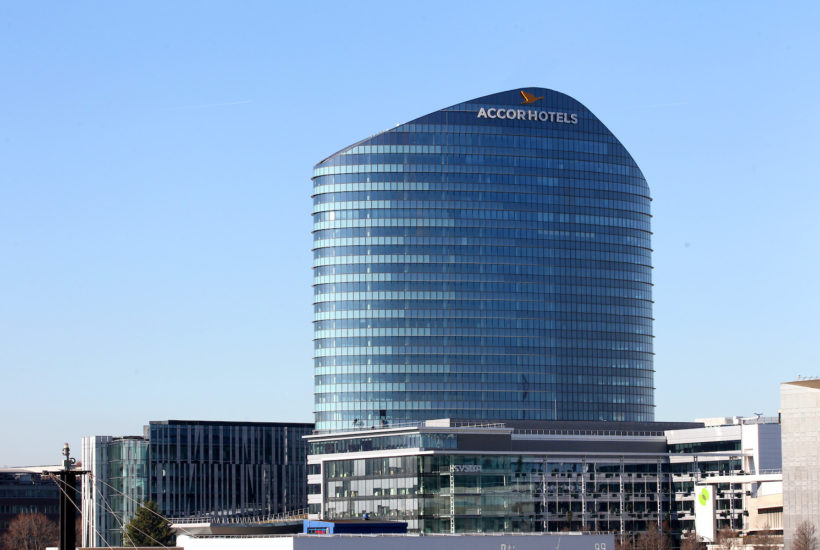Business
Accor will close up to two-thirds of its hotels under the Accor brand
The containment measures put in place worldwide to deal with the spread of the coronavirus have a direct impact on hotel occupancy. Revenue per available room could fall by 66% in the second quarter of the year. Accor, which does more than half of its business in Europe, reported that the pandemic had an impact of around $21.5 million (€20 million) on its EBITDA in January and February.

While containment decisions continue to multiply around the world, there is, of course, one sector that is suffering in particular, that of hotels and tourism. As a direct consequence of this situation, Accor is being forced to close its hotels one by one.
“To date, more than half of the hotels under the Accor brand have been closed, and two-thirds should be closed in the coming weeks,” announced the group on Thursday evening, March 2nd, which is facing a “brutal” deterioration in its activities.
Accor also announced new “drastic” cost reduction measures and the cancellation of its dividend for the 2019 financial year in order to cope with the economic consequences of the coronavirus epidemic.
In this context, it is only logical that Accor’s management has decided to lay off or partially lay off three-quarters of its head office staff worldwide in the second quarter. This will enable it to reduce its costs by at least $65 million (€60 million) by 2020. Recurring capital expenditure will be reduced by the same amount this year.
Born2Invest’s team of journalists gathers the most interesting business news in a single mobile application. It’s impossible to keep up with everything you’re interested in, but our companion app will help you keep track of the important news. Our app is being updated throughout the day.
Dividend payments for 2019 will be suspended
Nor is it illogical for the hotel operator to withdraw its proposal to pay the dividend planned for 2019, i.e. $302 million (€280 million). $75 million (€70 million) of this amount will be allocated to a fund specifically dedicated to helping employees hospitalized for COVID-19 infection or in financial difficulty. The group’s CEO, Sébastien Bazin, has waived 25% of his remuneration for the duration of the crisis.
Nevertheless, a small positive tone should be noted, which comes from the Chinese hotel market. Accor is seeing a gradual recovery in occupancy rates and in the restaurant business. As for the reassuring elements of this development, the group has more than $2.7 billion (€2.5 billion) of available liquidity and an undrawn revolving credit line of $1.3 billion (€1.2 billion).
Falling income per available room
In any case, one thing is certain, the impact of this health crisis will be strong on Accor’s 2020 accounts. As a result of the drop in hotel occupancy, Oddo BHF estimated that income per available room (RevPAR) will now fall by 32% this year. That is almost twice as much as in the last assessment when the rate was estimated at 18%. With relatively comparable trends in different parts of the world: -32.5% in Europe, -37% in North America, -32.5% in Asia-Pacific, -33% in Latin America. The impact will, of course, be stronger in the second quarter (-66%), after -13.5% at the end of March. However, the recovery will only be very gradual, since the company still estimates a 34% drop in attendance in the third quarter and a 14% drop in the last three months of 2020.
Accor, which does more than half of its business in Europe, reported that the pandemic had an impact of around $21.5 million (€20 million) on its EBITDA in January and February. For the year as a whole, Oddo BHF is revising its forecast for the decline in EBITDA for the year from 17% at the beginning of March to 21%.
__
(Featured image by Maibp85 via Wikicommons)
DISCLAIMER: This article was written by a third party contributor and does not reflect the opinion of Born2Invest, its management, staff or its associates. Please review our disclaimer for more information.
This article may include forward-looking statements. These forward-looking statements generally are identified by the words “believe,” “project,” “estimate,” “become,” “plan,” “will,” and similar expressions. These forward-looking statements involve known and unknown risks as well as uncertainties, including those discussed in the following cautionary statements and elsewhere in this article and on this site. Although the Company may believe that its expectations are based on reasonable assumptions, the actual results that the Company may achieve may differ materially from any forward-looking statements, which reflect the opinions of the management of the Company only as of the date hereof. Additionally, please make sure to read these important disclosures.
First published in LesEchos investir, a third-party contributor translated and adapted the article from the original. In case of discrepancy, the original will prevail.
Although we made reasonable efforts to provide accurate translations, some parts may be incorrect. Born2Invest assumes no responsibility for errors, omissions or ambiguities in the translations provided on this website. Any person or entity relying on translated content does so at their own risk. Born2Invest is not responsible for losses caused by such reliance on the accuracy or reliability of translated information. If you wish to report an error or inaccuracy in the translation, we encourage you to contact us.

-

 Impact Investing4 days ago
Impact Investing4 days agoEuropeans Urge Strong Climate Action Amid Rising Awareness and Support
-

 Cannabis2 weeks ago
Cannabis2 weeks agoRecord-Breaking Mary Jane Fair in Berlin Highlights Cannabis Boom Amid Political Uncertainty
-

 Biotech1 week ago
Biotech1 week agoVytrus Biotech Marks Historic 2024 with Sustainability Milestones and 35% Revenue Growth
-

 Crypto4 days ago
Crypto4 days agoRipple Launches EVM Sidechain to Boost XRP in DeFi

























